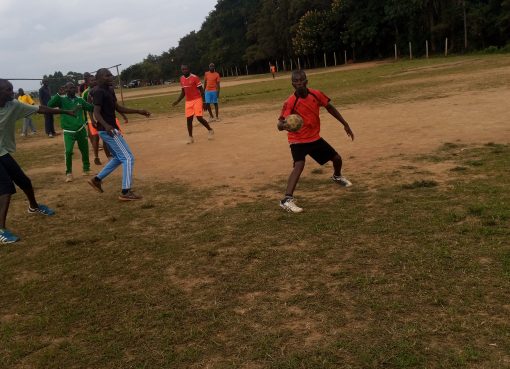
The Kenya Wildlife Service (KWS) has been urged to find a lasting solution to the perennial human-wildlife conflict in Kajiado County.
The County Director of Education (CDE), Luka Kangongo noted that frequent attacks by elephants in remote areas have often resulted in schools being closed to ensure the safety of the learners and teachers and this has greatly affected learning.
Kangongo revealed that during second term alone, eight primary schools in Masimba area were closed after elephants invaded the area.
Nemasi, Enkonerei MCK, Oldonyolenkai, Ilkelunyet, Orkatetemai, Oldonyosambu, Oltukai, and Chyulu Primary Schools were closed for over three weeks to safeguard the lives of pupils and teachers walking to and from school.
The schools were closed after three people were attacked and killed by the straying jumbos in Masimba area in May. One of the victims was a teacher at Enkoronei MCK primary school.
William Sonke Marona, 47, had his life cut short by an elephant as he walked into his home on the evening of May 24.
Marona was attacked and killed 20 metres from his house in Losukoroi village as he arrived from Masimba market where he had gone to buy foodstuff for his family.
“For learning to take place to take place swiftly, all agencies and stakeholders should work seamlessly to stop these wildlife attacks. In areas like Mashuru, Kajiado West, South and Central sub counties learning is often interrupted due to constant attacks and this is affecting education in our county,” said Kangongo.
In other places where schools were not closed pupils could no longer go to school early for fear of attacks. Pupils have been forced to report to school at 10am and leave as early as 3pm to avert attacks and this will definitely affect their performance, Kangongo added.
The CDE added that water tanks, gates, boreholes, trees and school property were often destroyed as the marauding jumbos invaded schools in search of water during the dry season.
“Actually, the situation is also making so many teachers to request for transfers and others reluctant to go to such areas due to the wildlife challenge thereby affecting the quality of education due to shortage of teachers in those remote areas,” he added.
The CDE’s remarks come a day after teachers from Kimana Primary School were forced to get out of the staff room and chase away elephants which had invaded the school compound at around 12 pm while classes were on-going.
“This has been the norm here. Every day, we have to escort children as they go home and while on the playing field because these animals just arrive unexpectedly at any time of the day and at worse times they chase away the kids like today when we heard screams and went for their rescue,” said one of the teachers.
The KWS County Senior Warden, Muteru Njauuni said they had increased patrols in the area and embarked on re-locating the animals to the parks.
He appealed to school heads to fence off their schools to reduce contact with the wild animals.
“Head teachers should be innovative in the ways of raising funds either by holding harambees or requesting the CDF office for assistance so that we reduce the contact with the wild animals. We will increase patrols in the affected areas to ensure that we push away the animals from areas where human beings frequent and we shall repair the boreholes so that the jumbos will be able to get water at night and avoid daylight contact with human beings,” Muteru said.
Recently, KWS paid off a sum of Sh.70 million to 14 families who had lost their loved ones as a result of human wildlife conflict at Kenyewa Poka ward, Kajiado East Sub County as well as a Deputy Head teacher, John Matipei of Emukutan Primary school who was attacked by a hyena.
By Rop Janet/ Albert Lemomo



